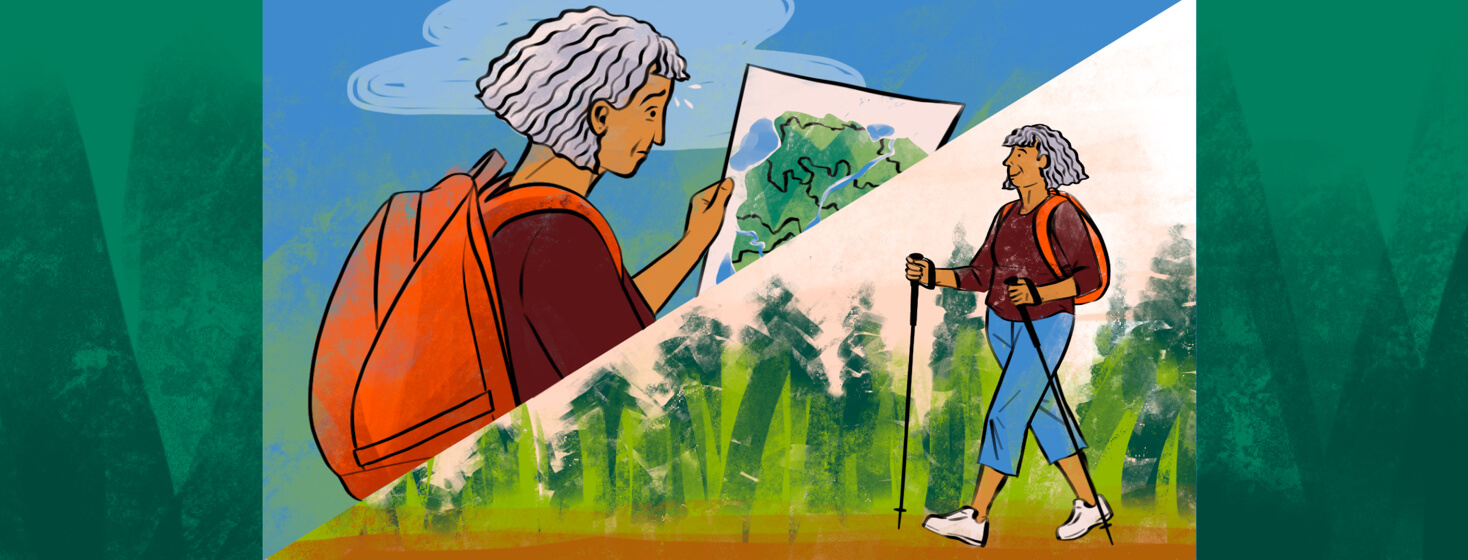Hiking With Narcolepsy: Managing Symptoms on the Trail
A forest of greens and browns surrounds me. Dirt crunches beneath my boots. My German Shepherd service dog is happily pulling me along the trail. I am passing a trail marker when I realize that the fog of a sleep attack was descending upon me. I continue lumbering on in a trance.
Forced to sit and wait
A few moments later, panic grips me when I realize that I have come to a split in the road. My sleep attack makes it difficult to decipher the trail, so I am forced to take a seat and wait for the fog to pass over me.
This is not an uncommon occurrence. As a disabled hiker with narcolepsy, this is my reality.
Hiking with narcolepsy has risk
Hiking has its dangers, and adding narcolepsy into the mix can make survival situations more likely. For example, many people who experience cataplexy find that it causes them to fall and injure themselves on a regular basis. If I were to fall and injure myself due to a cataplexy attack while hiking, I would suddenly be in a very bad spot.
Hiking relies on your ability to get in and out safely, of your own volition. With an injury that impaired my ability to walk, I could find myself taking hours to get back to my car. This might mean having to spend the night in the woods.
Morning hikes and preparedness
One way that I try to curtail this issue is by taking early morning hikes that are expected to end well before the late afternoon. I also make sure to always have a first aid kit on my person, as well as a lighter in case I need to build a fire to stay warm overnight.
I’ve practiced building and stoking fires in my backyard and am familiar with fire safety protocols to ensure that I don’t start a fire that I cannot stop.
Reducing my risk for navigation mistakes
Additionally, sleep attacks while hiking can lead to navigation errors. This is a worrisome problem. The only thing worse than being lost in the woods would be having sleep attacks while being lost in the woods!
My brain fog while having sleep attacks is disabling. If I am hiking, it is pretty much inevitable that I will experience a sleep attack. The real question is not “if” I will have a sleep attack; it is “when” I will have a sleep attack.
Navigating with an app
One tool that I use to keep myself safe while navigating is the AllTrails app. It helps me keep track of where I am on the trail, my elevation, and other navigation cues that I can rely on while hiking. My behavior becomes increasingly automatic and slurred as my sleep attacks onset. AllTrails is easy to use and helps me keep track of where I am while in this impaired state.
Hiking makes me feel at home
Hiking is one of my favorite activities. Despite my illness, I feel powerful and capable while exploring the wilderness. Sensory information from the wind, the sound and feel of the trees, and the smells and sights make me feel at home.
Are there activities in your life that you love, but your narcolepsy symptoms complicate?

Join the conversation